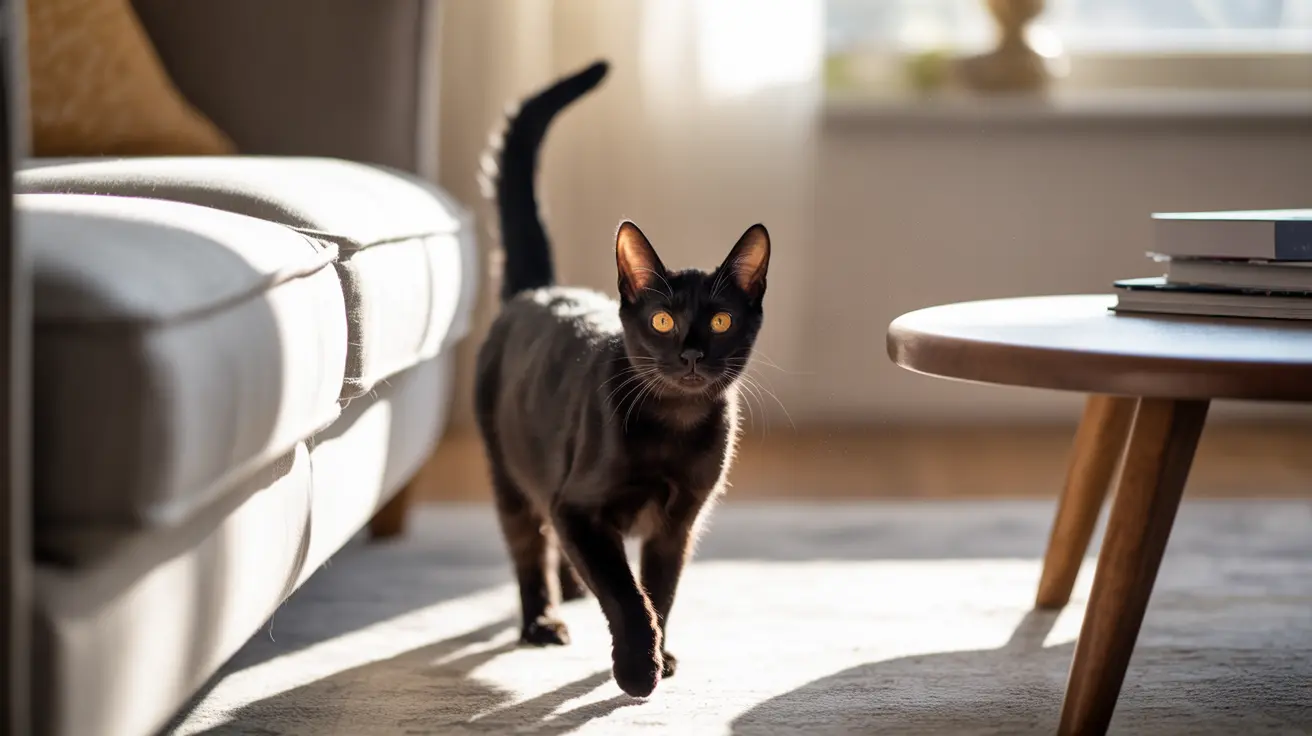The Truth About Bombay Cat Temperament
Bombay cats are renowned for their exceptionally friendly and outgoing personalities. Rather than displaying aggression, these cats often seek out human interaction and form strong bonds with their family members. They're known to follow their owners from room to room, earning them the nickname "velcro cats" among breed enthusiasts.
These intelligent felines typically display a perfect balance of playfulness and affection, making them ideal companions for various household types. Their gentle nature often surprises those who expect them to be fierce based on their appearance alone.
Common Misconceptions About Bombay Cat Behavior
The primary misconception about Bombay cats stems from their striking resemblance to mini panthers. However, this physical trait has no bearing on their personality. In fact, Bombay cats are typically less aggressive than many other domestic cat breeds.
While they may display some territorial behavior, particularly around other pets, this rarely manifests as true aggression. Instead, they're more likely to assert themselves through gentle persistence and charm rather than hostile actions.
Factors That Influence Bombay Cat Behavior
Several key factors contribute to a Bombay cat's temperament and behavior patterns:
- Early socialization and exposure to different environments
- Regular interaction with humans and other pets
- Adequate mental and physical stimulation
- Environmental stability and routine
- Quality of care and attention received
When these factors are properly addressed, Bombay cats typically exhibit their naturally gentle and affectionate disposition.
Living with a Bombay Cat
Bombay cats thrive in family environments and generally adapt well to various living situations. Their intelligence and trainability make them excellent companions for both experienced cat owners and newcomers to feline companionship.
These cats particularly excel in households where they receive plenty of attention and playtime. Their need for interaction means they're best suited to families who can dedicate time to engaging with them regularly.
Training and Socialization Tips
To ensure your Bombay cat maintains its naturally friendly disposition:
- Start socialization early and expose them to various people and situations
- Provide regular interactive play sessions
- Use positive reinforcement training techniques
- Create a stimulating environment with toys and climbing spaces
- Establish consistent daily routines
Frequently Asked Questions
Are Bombay cats naturally aggressive or more mild-mannered compared to other breeds?
Bombay cats are naturally mild-mannered and typically less aggressive than many other cat breeds. They are known for their friendly, sociable nature and strong bonds with their human families.
What behaviors indicate aggression in Bombay cats, and how can owners recognize them?
Signs of aggression in Bombay cats include hissing, growling, flattened ears, and raised fur. However, these behaviors are usually defensive responses to stress or fear rather than natural aggression.
How does socialization affect aggression levels in Bombay cats?
Early and consistent socialization significantly reduces the likelihood of aggressive behavior in Bombay cats. Well-socialized Bombays typically develop into confident, friendly adults who interact positively with humans and other pets.
Can Bombay cats live peacefully with other pets and children despite their territorial tendencies?
Yes, Bombay cats generally adapt well to living with other pets and children, especially when properly introduced. Their territorial tendencies are usually mild and manageable with appropriate socialization.
What are the best ways to reduce or prevent aggressive behavior in a Bombay cat?
The best ways to prevent aggressive behavior include providing regular exercise and mental stimulation, maintaining consistent routines, ensuring proper socialization, and addressing any stress triggers in their environment.






